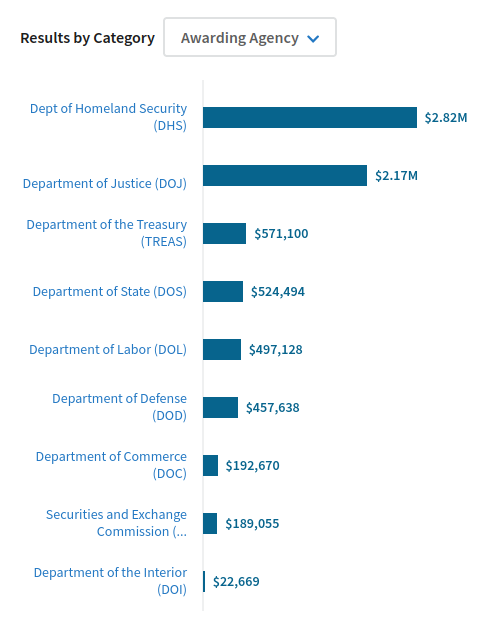US State Dept. says silence or anonymity on social media is suspicious
A cable yesterday from Secretary of State Marco Rubio, first reported by Nahal Toosi and Eric Bazail-Eimil of Politico, directs US embassies and consulates to “conduct a complete screening of the online presence of any nonimmigrant visa applicant seeking to travel to Harvard University for any purpose.”
The cable implies that the main although not the exclusive focus of this special scrutiny of each Harvard-associated visa applicant’s “online presence” will be the content of their social media accounts.
In the cable, Rubio told US consular officers who decide whether to grant or deny visa applications that “the lack of any online presence, or having social media accounts restricted to ‘private’ or with limited visibility, may be reflective of evasiveness and call into question the applicant’s credibility.” In such cases, consular officers are instructed to:
Inform the applicant that his case is subject to review of his online presence, request that the applicant set all of his social media accounts to “public,” and remind him that limited access to or visibility of social media activity could be construed as an effort to evade or hide certain activity. Consular officers must then refer the cases to the Fraud Prevention Unit (FPU).
Neither silence on social media, nor choosing to speak and associate anonymously, pseudonymously, or privately on social media, can Constitutionally or consistent with international human rights treaties be considered “suspicious” or “evasive”.
This directive was issued by Secretary of State Rubio without completing the ongoing process to obtain approval for the collection of social media account information on visa application forms, as required by the Paperwork Reduction Act. That multi-step approval process was initiated in early March of this year with a Federal Register notice announcing a 60-day public comment period that closed in early May.
The Identity Project, joined by Privacy Times and Government Information Watch, was among more than a thousand organizations and individuals who submitted comments, almost all of which opposed the proposed collection of social media identifiers.
The government has not yet completed its review of these comments, or taken the next step of submitting its request for approval of the collection of social media identifiers to the Office of Management and Budget (OMB).
In our comments, we noted some of the reasons visa applicants might reasonably fear that revealing acts of speech and association on social media that are legally protected in the US might place them in grave jeopardy in the countries in which they reside:
We cannot overstate the significance of anonymity or pseudonymity as a potentially life-or-death matter for social media users, most especially for dissidents, victims of discrimination, and those living under the jurisdiction of repressive regimes or otherwise in fear of persecution. Anonymous or pseudonymous speech, publication, and assembly are the only forms of dissident speech, publication, or assembly that are possible under some repressive regimes.
Activities which are protected by the First Amendment, including some which advance U.S. interests in freedom and democracy, are subject to legal sanctions in many other countries.
Capital crimes in Saudi Arabia, for example, include blasphemy against the state religion, disparagement of members of the royal family or the institution of hereditary absolute monarchy, trafficking in prohibited mind-altering substances including alcoholic beverages, and private sexual activity between consenting adults of the same gender in their home.
Saudi Arabia is a U.S. ally with which… U.S. agencies might be expected to share information obtained through this collection of information – including information that could identity Saudi Arabian citizens or residents who have perpetrated these “crimes”. As a result, this collection of information could subject these individuals, including pro-democracy activists, to sanctions in Saudi Arabia ranging from public whipping to beheading.
Even if this compelled disclosure of information were lawful – which we believe it isn’t – it would be bad public policy. The possibility of anonymous and pseudonymous discourse is an essential element of an open marketplace of ideas, and plays a particularly important role in the places where identifiable speakers and speech are subject to the greatest repression.
Anonymous and pseudonymous speech and publication have a long and honorable tradition in the U.S., going back to the anonymous authors and publishers of anti-monarchist handbills in the British colonies of North America and the pseudonymous authors of the Federalist Papers. Today, these works would probably be published on social media, and “Publius” – the pseudonym used by the authors of the Federalist – would probably be a social media identifier rather than a name printed on the title pages of a series of pamphlets.
Anonymity and pseudonymity are especially critical for social media users, whose speech can be, and sometimes is, held not only against themselves but against any or all of their social media “friends”, friends-of-friends, associates, contacts, and/or commenters.
The “special vetting” of visa applicants identified as intending to visit Harvard — students, faculty, staff, guest speakers, patients coming to the US for treatment at Harvard hospitals, attendees at Harvard conferences and symposia, etc. — is described as “a pilot for expanded screening and vetting of visa applicants. This pilot will be expanded over time.”
Rather than being expanded, this directive should be rescinded and the “pilot” ended.
